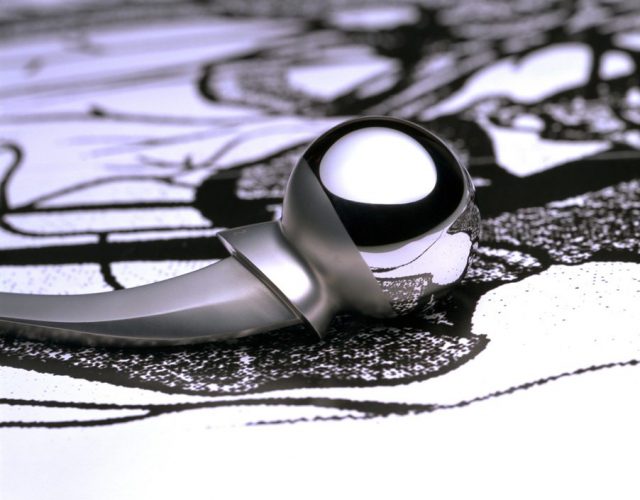DePuy Orthopaedics Hip Replacements
DePuy is one of the largest manufacturers of hip replacements in the world. It sells individual hip implant components and complete hip replacement systems. The ASR XL Acetabular System and ASR Hip Resurfacing System were recalled and, along with Pinnacle's all-metal components, were discontinued.
What Types of Hip Implants Does DePuy Make?
DePuy Orthopaedics, a subsidiary of Johnson & Johnson, has more than 200 orthopedic products, including hip, knee and shoulder replacements. Its top hip reconstruction products include its Summit Tapered Hip System, Actis Total Hip System and Pinnacle Hip Solutions.
More than two million patients have received Pinnacle Hip Solutions cups, according to DePuy. Stems from the Total Hip System have been implanted in more than 1.6 million patients across the world. The products include cemented or cementless stems and femoral heads.
- Actis Total Hip System
- Bi-Mentum Dual Mobility Hip System
- Corail Hip System and KAR Hip Systems
- Emphasys Hip Solutions
- Gripton TF Acetabular Revision System
- Pinnacle Hip Solutions
- Reclaim Modular Revision Hip System
- Summit Tapered Hip System
- Tri-Lock Bone Preservation Stem
DePuy has several products with a history of safety and effectiveness, but some of its products have been scrutinized and recalled for ineffectiveness. In 2010, DePuy recalled its ASR XL Acetabular System and ASR Hip Resurfacing System because a large number of patients required revision surgery after receiving the implants.
The company also stopped selling the all-metal versions of the Pinnacle system of implants because large numbers of consumers claimed the devices were faulty and led to a type of metal poisoning called metallosis.
DePuy’s ASR XL Acetabular and Hip Resurfacing Systems
The DePuy ASR XL Acetabular System and ASR Hip Resurfacing System are no longer available. DePuy issued a recall in 2010 after data from the National Joint Registry of England and Wales, the British Orthopaedic Association and the British Hip Society indicated significant failure rates.
In 2013, Johnson & Johnson settled thousands of ASR hip lawsuits for $4 billion. These hip replacement systems had been used in more than 93,000 hip replacement surgeries internationally.
Both systems were members of a class of large-diameter hip resurfacing and replacement devices created from a single sheet of metal. The metal-on-metal systems were designed to be more durable than other systems, but they resulted in serious complications.
The ASR XL System was launched in the United States in 2005. It was designed to be used for total hip replacements. The ASR Hip Resurfacing System was sold internationally beginning in 2003. It was intended to be used in hip resurfacing procedures, which eliminate less natural hip structure than total hip replacements.

Pinnacle Hip Replacement System
The Pinnacle Hip Solutions is what is known as a modular cup system with a variety of available cup options. DePuy notes that the Pinncale Cup “celebrated 15 years of clinical heritage in 2015,” commemorating its U.S. Food and Drug Administration approval in 2000.
While products in the current Pinnacle line are generally considered safe, there were serious issues with metal-on-metal components. The FDA approved the cup liner used in the Pinnacle metal-on-metal components based on a nearly identical DePuy product that had already been approved: the Ultima Metal-On-Metal Acetabular Cup.
A 2010 study published in the Journal of Bone and Joint Surgery revealed that the Ultima metal liner failed in 14% of patients. During revision surgery, doctors found several unexpected complications, such as cloudy fluid in pockets in the hip, severe necrosis (tissue death) and ruptured tendons.
Both the Pinnacle and Ultima metal liners caused friction between the cup and the ball-shaped replacement head of the thigh bone. This could cause the device to prematurely erode and release metal ions that cause a type of metal poisoning called metallosis.
By 2012, almost 1,600 lawsuits were filed against DePuy involving Pinnacle implants. The company never recalled the Pinnacle products, but it stopped selling the metal-on-metal components in 2013. In 2016, the company lost a pair of multi-million dollar verdicts and was ordered to pay damages of $1 billion and $502 million to two groups of patients, according to Bloomberg.
Calling this number connects you with a Drugwatch representative. We will direct you to one of our trusted legal partners for a free case review.
Drugwatch's trusted legal partners support the organization's mission to keep people safe from dangerous drugs and medical devices. For more information, visit our partners page.

